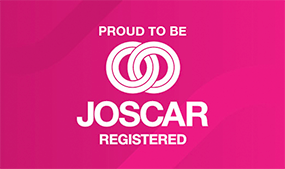
04/06/2025
TSG Talk- Saving lives in conflict zones
In this episode, Senior Partner Colin Smart engages in a compelling conversation with Richard Villar, delving into his remarkable experiences of saving lives in conflict zones around the globe. They explore the challenges faced and the strategies employed to overcome them, highlighting the resilience and dedication required in such high-stakes environments.
Richard’s background
Richard began by sharing his background as the son of a naval officer. This unique upbringing meant he spent much of his childhood living overseas, which sparked his passion for travel and exploration. He initially joined the Special Air Service (SAS) as a trooper.
Later when he qualified as a medical doctor, he became the regimental medical officer for 22 SAS. During this period, Richard gained extensive experience in various conflict zones, honing his medical and leadership skills under challenging conditions.
After the Falklands War, Richard decided to leave the SAS and transitioned to a role as a consultant in both the NHS and private care sectors. In these roles, he continued his humanitarian work, often leading teams of colleagues on overseas missions to provide medical aid and support in areas of need. Richard's commitment to humanitarian efforts saw him become the surgical lead for the UK disaster team. In this capacity, he played a crucial role in coordinating medical responses to disasters and conflicts worldwide. His career took him to numerous locations, including Java, where he provided aid following natural disasters, and Libya, during the NATO bombing campaign. One of his notable achievements was organising the UK response to the devastating earthquake in Haiti. Throughout his career, Richard's dedication to helping others and his expertise in medical and disaster response have made a significant impact on countless lives around the world.
Realities
Richard first highlighted how important adaptability is when deploying to a conflict and that you never really know what the situation on the ground may be like. He explained how you will often need to work outside of your core skills but adapt to the challenges you face.
He expanded on this by discussing how austere locations in conflict and disaster zones are incredibly difficult places to work. The environment you are deploying to should always be considered and evaluated before you deploy to make sure you properly understand how an austere environment will affect your deployment. Then, you should prepare correctly to ensure you can perform your tasks effectively.
He then explained the reality that many deaths in conflict zones can be prevented with the proper care. The cause of a lot of these deaths is from loss of blood, but applying good basic skills can have a massive positive input into maximising survival in conflict. It is very important to ensure you have the correct skills and access to equipment to enhance your ability to intervene effectively. Richard underscored the importance of psycho-social care for the team, highlighting that the dynamics of conflict affect individuals in unique ways. He stressed the likelihood of post-deployment effects and the crucial role mentoring can play in offering support. Having someone who understands your experiences is a vital part of your support network, and having someone to talk to can help with your recovery.
Richard then pointed out the harsh reality of sleep deprivation in conflict zones, where individuals often get just 3.5 hours of sleep per day. This chronic lack of rest can significantly impact both physical and mental health, making it even more essential to have a strong support system in place.
He advised always keeping a grab bag with you, as it can sustain you for a significant period if the situation deteriorates. This bag should contain essential items that can help you survive and stay safe during emergencies, emphasising the need for preparedness in unpredictable environments.
Changing nature
Richard then talked about how the safety levels of aid workers in conflict zones have changed dramatically since he first started. He pointed out that in the past, aid workers were safe from harm in most cases, but now they need to be very careful. He stated that you cannot “hide behind the badge” anymore. Conflict and disaster zones have levels of risk attached to them, and you need to accept that as an aid worker, you may become a target and manage that risk through training and protection equipment.
Moreover, he made the point that conflict is constantly changing and different weapons are used in various areas of the world, which creates diverse injury profiles that you will need to treat, which makes being adaptable all the more important.
Digital information generation is also an important consideration, as such information is so powerful. The development of AI and social media has the potential to drastically change the dynamic on the ground and increase the risk when you deploy. So you need to be aware that change is present and plan and train for the potential of an increase in danger.
If you had to select one piece of medical equipment to have with you regardless of task, what would it be?
When asked what piece of equipment Richard would always take with him, he explained that he takes his smile with him wherever he goes. He said that if you smile, regardless of the situation, people will love you and want to work with you; it has the power to defuse situations.
What advice would you give our listeners?
Richard has recently returned from Gaza and has shared his unique insights in his latest book, Gaza Medic. In this book which he wrote while he was in Gaza, he highlights the essence of working in a conflict zone in a raw and emotional way. He shows the reality of working in a conflict environment where the population is suffering and needs support. To learn more about the reality of saving lines in a live conflict zone, we recommend you give it a read.
You can get your copy here.
CPD accreditation
We're thrilled to partner with Ambulance CPD to offer the TSG Talk Podcast series on their website. Ambulance professionals can now stream high-quality content and earn CPD certificates. Visit Ambulance CPD's website to explore and enhance your professional growth.
What next?
Click here to listen to the full TSG Talk episode featuring Richard Villar, to find out more about life-saving solutions, please call TSG Associates on 01422 557841 or email us at info@tsgassociates.




%202.png)







